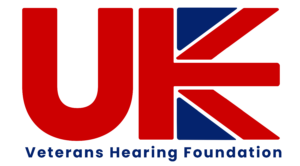Serving in the military often comes with its own set of challenges and sacrifices, and one of the most overlooked struggles faced by veterans is hearing loss. Hearing loss and tinnitus are two of the most common service-connected disabilities among veterans. Sadly, this silent struggle often goes unnoticed, but it’s essential to shed light on the challenges faced by veterans with hearing loss. In this blog post, we will explore some of these challenges and the importance of supporting our veterans.
1. Communication Difficulties
One of the most significant challenges faced by veterans with hearing loss is communication difficulties. Hearing loss can make it challenging to understand conversations, especially in noisy environments or when multiple people are speaking. Veterans may find it frustrating and isolating when they are unable to fully engage in conversations with their loved ones, friends, or colleagues.
2. Social Isolation
As a result of communication challenges, veterans with hearing loss often face social isolation. Difficulty in participating in social activities or gatherings can lead to feelings of loneliness and exclusion. Hearing loss can impact personal relationships, work interactions, and overall quality of life. Social isolation can have detrimental effects on mental health, causing feelings of depression and anxiety.
3. Occupational Impacts
For veterans transitioning into civilian life, hearing loss can present significant obstacles in finding and maintaining employment. Many jobs require effective communication, whether it’s in-person or over the phone. Hearing loss can limit veterans’ career options and affect their overall job performance, potentially leading to frustration and financial strain.
4. Mental Health Implications
The challenges of hearing loss can take a toll on the mental health of veterans. Feelings of frustration, isolation, and reduced self-esteem can contribute to anxiety, depression, and other mental health issues. It’s crucial to address the psychological impact of hearing loss and provide adequate support to prevent further harm to veterans’ mental well-being.
5. Lack of Awareness
Despite the significant number of veterans affected by hearing loss, there is often a lack of awareness surrounding this issue. Many people underestimate the impact hearing loss can have on individuals’ daily lives and fail to recognize the support veterans need. Advocacy and education are essential to increase awareness, reduce stigma, and improve understanding of the challenges faced by veterans with hearing loss.
Supporting Our Veterans
It is our collective responsibility to support and assist veterans with hearing loss. Here are a few ways we can make a difference:
Accessibility: Promote and implement accessibility measures to ensure that public spaces, workplaces, and social environments are conducive to effective communication for individuals with hearing loss.
Assistive Devices: Support funding and access to hearing aids and assistive devices for veterans who need them. These devices can significantly improve communication and quality of life.
Advocacy: Raise awareness of the challenges faced by veterans with hearing loss. Encourage policymakers, organizations, and healthcare providers to prioritize the needs of our veterans and provide necessary support services.
Mental Health Support: Offer mental health resources and counseling services specifically tailored to address the psychological impact of hearing loss on veterans. Ensure that comprehensive healthcare includes psychological well-being along with physical health.
Community and Support Groups: Create and promote community and support groups for veterans with hearing loss. These groups can offer a space for individuals to share their experiences, find support, and build connections with others facing similar challenges.
It’s time to break the silence and recognize the struggles faced by veterans with hearing loss. By understanding and addressing these challenges, we can create a more inclusive and supportive environment for our veterans. Let’s work together to ensure that no veteran feels alone in their journey and that their sacrifices and contributions are acknowledged and appreciated.


Recent Comments